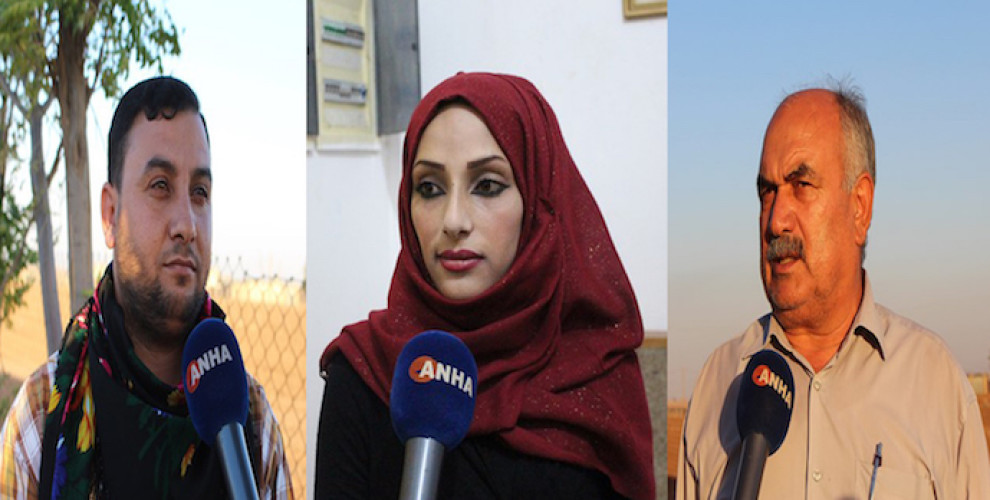People speak out on Martyrs Graveyard attack by Turkish army
The Martyr Avesta Xabur martyrs graveyard in Afrin was the last of a number of places destroyed by mercenaries.
The Martyr Avesta Xabur martyrs graveyard in Afrin was the last of a number of places destroyed by mercenaries.

The Martyr Avesta Xabur martyrs graveyard in Afrin has been destroyed on Friday by the occupying Turkish army and its mercenary allies.
The families of martyrs in Tirbespiye (Qamishlo Canton) condemned such a brutal practice and called the attacks on the martyrs an act of cowardice and immorality.
Seid al-Hebib, member of the Tirbespiye Martyrs Families Council, said that the Turkish army and mercenaries are continuing to carry out their brutal actions.
"The destruction of the Martyr Avesta Xabur Martyrs graveyard is an example of this brutality”.
Al-Hebib noted that it is not the first time that Turkey and the mercenaries attack these places of respect. He recalled that martyrs graves and graveyards have been attacked times and times again both in Bakur (North) and Bashure (South) Kurdistan.
Underlining the importance and respect paid to martyrs by the Kurdish people and the peoples of Northern Syria, al-Hebib said that in fact it is precisely to hurt people that the Turkish state carries out such attacks.
Al-Hebib also underlined that the invading troops are afraid of the martyrs who resisted the occupation attacks.
Suat al-Hisên, relative of a martyr, reminded that the Turkish state is deliberately hitting and destroying places of highest respect for people, such as the graves of martyrs.
“The invaders are hitting Kurds by hitting their most sacred places. This is how they run the politics of genocide everywhere”.
Abdulrahman Ehmed said: “[Turkish President] Erdogan speaks in the name of Islam and shows himself as the caliph of Muslims. But, then, why is he attacking the graves of Muslims and martyrs?"
Ehmed added: “I am sure we will soon liberate Afrin. The Turkish state has resorted to such attacks because it has failed in the political and economic field”.